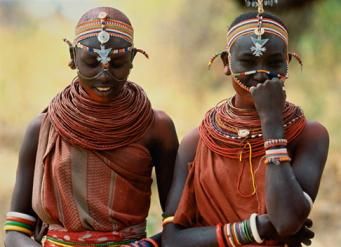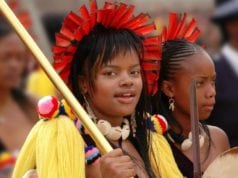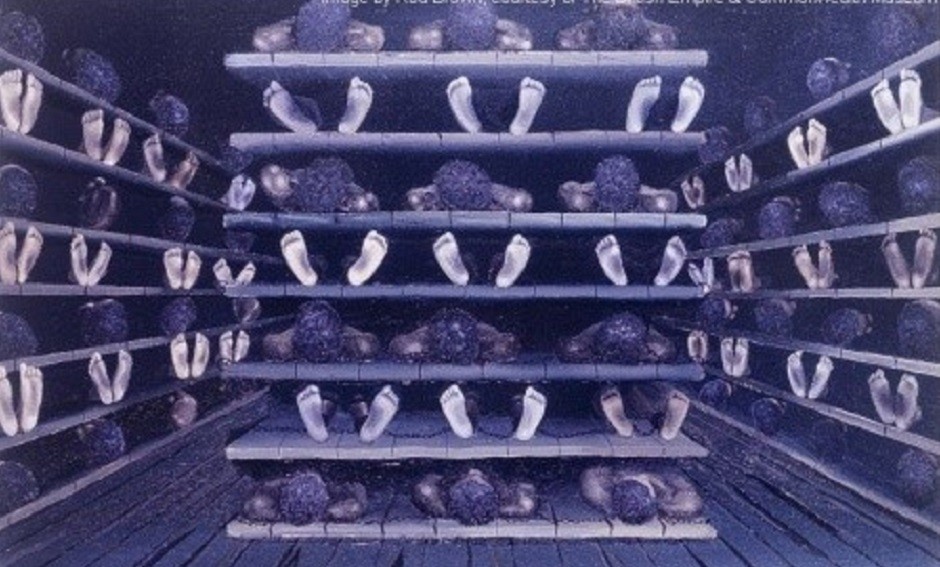
The Ashanti tribe, located in central Ghana is the largest tribe of the region. The people of this tribe live in the West African Rainforest nearly 150 miles away from the West Coast. It is the major indigenous tribe of the Akans (Ashanti and Fanti) of Ghana.
Ghana basically is a new country of about 60 years old, and it was previously known as the Gold Coast. Most of the modern province of Ghana was dominated by the Ashanti tribe from 1670 to 1902.
Ashanti those days was the largest and most powerful of the states established in the forest province of southern Ghana by the people known as ‘Akans’. Akans were very rich in gold and this was the main reason why they were able to form a state.
Today, Ashanti is the largest tribe in Ghana, which is politically separated into four major parts. With a population of about 1 million, the tribe which covers 9400 square miles of land area, lies in the center and its capital is Kumasi.
History
Ashanti emerged as the dominant power in 1670. It conquered the left, right and central tribes declaring a monopoly on the routes to the coasts. Kumasi, the capital, became the practical urban center with services and facilities like those of Europe those days.
Due to this, it became one of the trade centers for the Europeans. Starting from Portuguese, slowly British, French, Dutch and other Europeans built forts all over the coasts and shared trades like gold, raw materials, slaves, etc, with them.
But then came the time in the 19th century when the trade of the slaves was completely abolished, and this led to the fall of the Ashanti Kingdom. At that time, British took over the Gold Coast. Due to this, several wars were fought between the two powers, which resulted in the British capture over the capital Kumasi in 1874. They slowly took over the main gold coasts and captured the Ashanti. The Gold Coast became a British colony.
Ashanti People
The Ashanti people are one of the major ethnic groups in Ghana, they also have one of the richest cultural histories. They generally reside in the central Ghanaian Ashanti Region. The Ashanti people have a long history of being shrewd merchants and warriors, they also played a significant role in the transatlantic slave trade.
The Ashanti people were always fierce fighters. They always believed in their slogan: “If I go forward, I will die. If I step backward, I’ll die. It is better to move forward and die.” They used to signal for war with drum strokes which were so loud that the sound was heard over miles crossing the dense forests.
The people have an orthodox way of shaking hands; they hold their left hand out while shaking hands. According to this orthodox trend, the left hand is meant to hold shields and the right hand for sword and spear. So to show trust in someone, the left hand is freed by keeping the shield aside. They still follow the same trend to shake hands.
Ashanti people have a strong belief that their soul is their father’s spirit and the blood and the flesh comes from mother. And therefore they are said to be closer to their maternal side. The Ashantis live in a joint family where the head of the family is the eldest brother, elected by elders in the family. He is then followed and obeyed by everyone and becomes the head of the family or the house head. The family lives in huts surrounded by the courtyard fence.
Culture and Religion
The Ashanti religion is the combination of spiritual and supernatural beliefs. They believe that plants, trees, and animals have souls. They also believe in forest monsters, witches, and fairies. They practice a variety of religious beliefs depending on ancestors, abosom or higher gods, and ‘Nyame’, the foremost being of Ashanti.
They also practice different ceremonies for birth, death, marriage, and puberty. The Ashanti follow the culture of celebrating various ceremonies. Their funerals are celebrated for several days in the presence of the whole village. The presence of each and every villager is very important in the ceremonies.
The golden stool is like a divine to the Ashanti. Even today the Ashanti tribe still lives in the tradition of the Golden Stool. They protect the Golden Stool very carefully. Since its arrival, it has never touched the ground and no one has ever sat on it. It is kept in a very tight security as it has always been considered sacred.
The Ashanti people are also known for their traditional clothing, music, dance, and art. Kente cloth is a type of fabric that is closely associated with Ashanti culture, and it is often worn during special occasions such as weddings and funerals.
The Ashanti’s are also known as the experts in a wide range of specialized crafts. These crafts include wood carving, weaving, the renown kente cloths, metallurgy, and ceramics. Among these crafts, only pottery making is meant for a female, the others are strictly meant for male specialists. Even in the making of pottery, only male specialists are allowed to design the pottery and pipes.
Many selected Ashanti crafts are available for purchase at the African Crafts Market.







